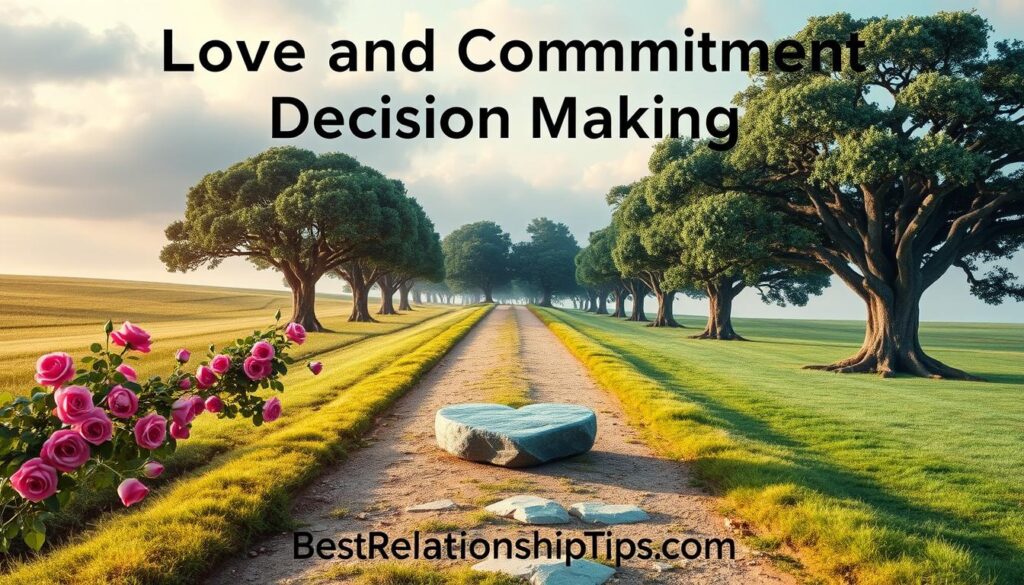
Love is a complex emotional journey that often challenges our understanding of relationships. Many people wonder if it’s possible to love someone while experiencing feelings for another person. The reality of emotional connections is far more nuanced than simple black-and-white definitions.
Emotional infidelity can emerge unexpectedly, with initial attractions being sudden and uncontrollable. People might develop feelings for someone else due to shared values, personality traits, or unexpected connections that spark curiosity and emotional resonance.
Understanding these feelings requires deep self-reflection. Can you love someone while in a relationship? Psychologists suggest that experiencing a crush doesn’t necessarily mean you want to leave your current partnership. These emotions can stem from unmet needs or personal struggles within your existing relationship.
Key Takeaways
- Attractions can be spontaneous and beyond personal control
- Experiencing feelings for another person doesn’t invalidate current love
- Emotional complexity is normal in long-term relationships
- Self-reflection is crucial in understanding relationship dynamics
- Communication remains the most important relationship tool
Understanding Love in Different Contexts
Love is a complex emotion that transforms across different stages of relationships. Researchers have discovered multiple dimensions of emotional connection that go beyond simple romantic attraction. Understanding these nuanced experiences helps individuals navigate their personal relationships more effectively.
Defining Love vs. Infatuation
Love and infatuation represent distinct emotional experiences. Infatuation typically involves:
- Intense physical attraction
- Short-term emotional euphoria
- Idealization of the partner
- Limited deep emotional connection
In contrast, genuine love develops through deeper emotional understanding and commitment. Open relationships and polyamory demonstrate that love can exist in multiple forms, challenging traditional relationship paradigms.
The Nature of Companionship
Companionate love focuses on maintaining boundaries and mutual support. Researchers like Sternberg identify three crucial components of love:
| Component | Description |
|---|---|
| Intimacy | Emotional closeness and connection |
| Passion | Physical and romantic attraction |
| Commitment | Long-term dedication to the relationship |
Love’s Complexity in Relationships
Relationship experts emphasize that love is an evolving experience. Mature love transcends initial attraction, focusing on mutual growth, understanding, and supportive partnership.
“Love is not about possession, but about mutual respect and individual growth.” – Unknown
Understanding these nuanced aspects of love helps individuals build more meaningful, sustainable relationships that respect individual needs and emotional complexities.
The Dynamics of Romantic Love
Love represents a complex emotional journey that transforms and evolves through time and experience. Understanding the intricate dynamics of romantic relationships requires deep insight into emotional attachment and personal growth.

Emotional Attachment Explained
Emotional attachment forms the cornerstone of intimate relationships. Research indicates that individuals seek profound connections that provide:
- Emotional security
- Mutual understanding
- Shared experiences
- Personal growth
“Love is not about possession, but about mutual understanding and respect.”
Balancing Multiple Relationships
Ethical non-monogamy has emerged as a relationship approach that challenges traditional partnership models. Establishing clear relationship rules becomes crucial in navigating complex emotional landscapes.
Key strategies for managing multiple relationships include:
- Transparent communication
- Consistent jealousy management
- Setting clear boundaries
- Practicing emotional intelligence
The Impact of Time and Experience
Relationships transform through shared experiences. Studies reveal that 48% of individuals believe partner preferences change over time, highlighting the dynamic nature of romantic connections.
University research suggests that mature relationships require continuous adaptation, emotional vulnerability, and mutual respect to maintain deep, meaningful bonds.
Signs You May Love Someone Else
Navigating emotions in relationships can be complex. Understanding the subtle signs of developing feelings for someone else helps maintain emotional integrity and prevent potential emotional infidelity.
Recognizing emotional signals early can protect your current relationship and help you maintain healthy boundaries. Experts suggest that crushes often reveal underlying relationship dynamics.
Emotional Signals to Recognize
- Decreased emotional intimacy with your current partner
- Frequent thoughts about another person
- Comparing your partner unfavorably to someone else
- Seeking emotional validation outside your relationship
The Role of Jealousy
Jealousy can be a complex emotional indicator. Feelings for someone else might trigger unexpected protective or competitive behaviors in your existing relationship.
“Crushes are often more about what’s missing in your current relationship than the new person,” says K’Hara McKinney, licensed marriage and family therapist.
Red Flags in Your Current Relationship
| Relationship Indicator | Potential Meaning |
|---|---|
| Emotional Distance | Potential disconnection from current partner |
| Reduced Communication | Seeking connection elsewhere |
| Fantasizing About Another Person | Unresolved relationship issues |
Understanding these signals helps manage maintaining boundaries and making informed relationship decisions. Professional guidance can provide additional perspective when navigating complex emotional landscapes.
Healthy Communication in Conflicting Emotions
Navigating emotional landscapes in relationships requires skillful communication in relationships. Understanding how to express feelings authentically while maintaining emotional intelligence can transform relationship dynamics.
Effective communication is more than just talking—it’s about creating meaningful connections. Research indicates that healthy communication significantly increases relationship satisfaction and intimacy.
Open Conversations with Your Partner
Creating a safe space for dialogue involves several key strategies:
- Choose the right time and setting for serious discussions
- Use non-threatening body language
- Avoid accusatory language
- Express personal feelings using “I” statements
“Communication works for those who work at it.” – John Powell
Honesty vs. Protecting Feelings
Balancing brutal honesty with emotional sensitivity requires nuanced approach. Marshall Rosenberg’s nonviolent communication formula offers guidance: “I feel _________ when you _________ and I need _________”.
The Importance of Active Listening
Active listening transforms communication in relationships. Key components include:
- Paying full attention
- Reflecting back what you heard
- Asking clarifying questions
- Suspending judgment
By practicing emotional intelligence and compassionate communication, couples can build deeper, more resilient connections.
Navigating Emotional Conflict
Emotional conflicts can create significant challenges in relationships. Understanding how to navigate these complex feelings requires careful self-reflection and strategic approaches to communication in relationships.
Identifying Your True Feelings
Recognizing your genuine emotions is crucial in relationship rules. Take time to explore the root of your feelings by:
- Journaling your thoughts and experiences
- Practicing mindful self-reflection
- Identifying emotional triggers
“Understanding your emotions is the first step toward resolving relationship conflicts.”
Seeking Support from Friends and Family
External perspectives can provide valuable insights during emotional turmoil. Trusted confidants can offer:
- Objective viewpoints
- Emotional validation
- Potential problem-solving strategies
Professional Help: When to Consider Therapy
Research indicates that couples addressing conflicts effectively are significantly more satisfied in their relationships. Professional therapy becomes essential when:
- Communication breaks down consistently
- Emotional distance continues to grow
- Unresolved conflicts persist
Therapy provides structured guidance to transform relationship dynamics, helping partners develop deeper understanding and more effective communication strategies.
Making Choices: Love vs. Commitment
Navigating the complex landscape of relationships often involves challenging decisions about love and commitment. Can you love someone while in a relationship with another person? The answer is not always straightforward.

Relationships require careful consideration, especially when emotional connections become complicated. Understanding the nuances of love and commitment can help individuals make more informed choices.
Weighing Your Options
When facing emotional crossroads, it’s crucial to evaluate your current relationship’s foundation. Consider these key factors:
- Emotional compatibility
- Shared values and goals
- Long-term relationship potential
- Personal growth opportunities
Understanding the Consequences
“Commitment is a choice, not just an emotion.” – Dr. Scott Stanley
Exploring ethical non-monogamy or polyamory might be an option for some couples. Each choice carries significant emotional and practical implications:
- Potential relationship restructuring
- Emotional impact on all parties
- Personal integrity and honesty
- Long-term relationship sustainability
The Role of Personal Values
Your individual values play a critical role in relationship decisions. Commitment involves intentional choices that transcend momentary feelings. Research suggests that conscious decision-making is fundamental to maintaining healthy relationships.
Ultimately, understanding your true feelings and being honest with yourself and your partner is paramount when navigating complex emotional terrain.
Redefining Your Relationship
Relationships are dynamic landscapes that evolve with personal growth and changing emotional needs. Understanding how to navigate these shifts can transform your approach to love and connection.
Modern relationships are no longer confined to traditional monogamous structures. The rise of ethical non-monogamy has opened new pathways for individuals seeking deeper emotional connections and personal authenticity.
Exploring the Possibility of Open Relationships
Open relationships require honest communication and mutual understanding. They are not simply about casual encounters but represent a thoughtful approach to maintaining emotional intimacy while respecting individual desires.
- Communicate openly about expectations
- Establish clear emotional boundaries
- Practice radical honesty with partners
- Regularly reassess relationship agreements
Setting Boundaries for Emotional Safety
Maintaining boundaries is crucial in open relationships. These guidelines protect emotional well-being and ensure all parties feel respected and valued.
| Boundary Type | Purpose | Implementation |
|---|---|---|
| Emotional | Protect personal feelings | Regular check-ins |
| Physical | Ensure health safety | Mutual agreement on intimacy |
| Time | Manage relationship balance | Scheduled quality time |
When It’s Time to Move On
Recognizing when a relationship no longer serves your emotional growth is a sign of maturity. Some relationships are meant to teach us valuable lessons about ourselves.
“Not all connections are meant to last forever, but each one can contribute to our personal evolution.”
Statistically, 40% of marriages end in divorce, indicating that relationships require continuous effort and honest communication. By embracing ethical non-monogamy and maintaining clear boundaries, individuals can create more authentic and fulfilling connections.
Tips for Relationship Enhancement
Strengthening your relationship requires intentional effort and understanding. Communication in relationships plays a critical role in building deeper connections. Dr. Gary Chapman’s research on love languages reveals that partners can express affection differently, making it essential to understand and respect each other’s unique emotional needs.
Cultivating Emotional Intelligence
Developing emotional intelligence helps manage jealousy management and improves relationship dynamics. By learning to recognize and process emotions effectively, couples can navigate challenges more smoothly. Practicing active listening and empathy creates a safe environment where both partners feel valued and understood.
Practicing Gratitude and Appreciation
Small gestures of appreciation can significantly transform relationship rules. Recognizing your partner’s efforts, no matter how minor, builds mutual respect and reinforces emotional bonds. Research shows that couples who regularly express gratitude experience higher relationship satisfaction and long-term stability.
Engaging in Shared Activities Together
Creating shared experiences strengthens intimacy and connection. Whether trying a new hobby, planning spontaneous date nights, or revisiting cherished memories, collaborative activities reignite passion and maintain relationship excitement. By investing time and energy into mutual growth, couples can sustain a dynamic and fulfilling partnership.
